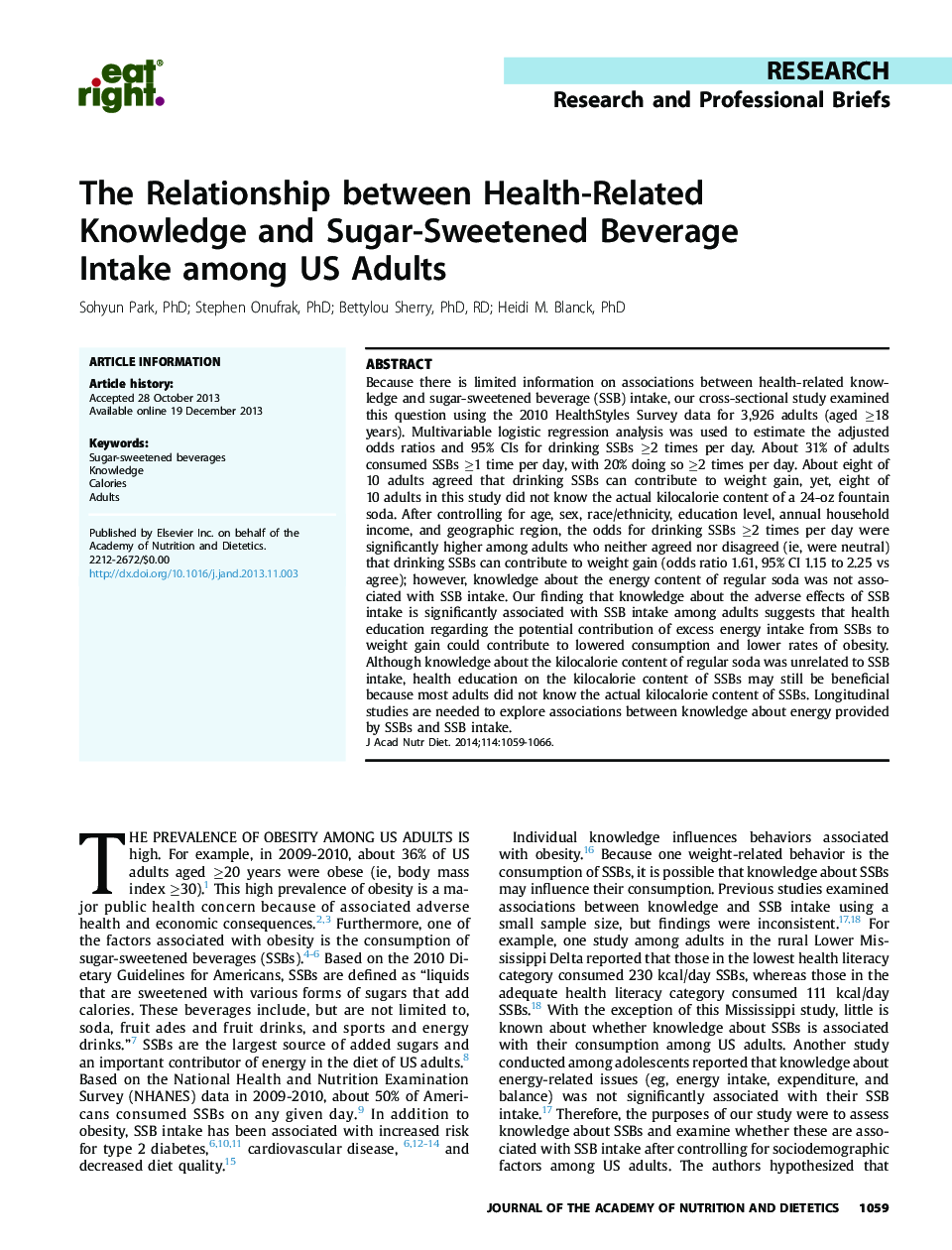| Article ID | Journal | Published Year | Pages | File Type |
|---|---|---|---|---|
| 5869593 | Journal of the Academy of Nutrition and Dietetics | 2014 | 8 Pages |
Because there is limited information on associations between health-related knowledge and sugar-sweetened beverage (SSB) intake, our cross-sectional study examined this question using the 2010 HealthStyles Survey data for 3,926 adults (aged â¥18 years). Multivariable logistic regression analysis was used to estimate the adjusted odds ratios and 95% CIs for drinking SSBs â¥2 times per day. About 31% of adults consumed SSBs â¥1 time per day, with 20% doing so â¥2 times per day. About eight of 10 adults agreed that drinking SSBs can contribute to weight gain, yet, eight of 10 adults in this study did not know the actual kilocalorie content of a 24-oz fountain soda. After controlling for age, sex, race/ethnicity, education level, annual household income, and geographic region, the odds for drinking SSBs â¥2 times per day were significantly higher among adults who neither agreed nor disagreed (ie, were neutral) that drinking SSBs can contribute to weight gain (odds ratio 1.61, 95% CI 1.15 to 2.25 vs agree); however, knowledge about the energy content of regular soda was not associated with SSB intake. Our finding that knowledge about the adverse effects of SSB intake is significantly associated with SSB intake among adults suggests that health education regarding the potential contribution of excess energy intake from SSBs to weight gain could contribute to lowered consumption and lower rates of obesity. Although knowledge about the kilocalorie content of regular soda was unrelated to SSB intake, health education on the kilocalorie content of SSBs may still be beneficial because most adults did not know the actual kilocalorie content of SSBs. Longitudinal studies are needed to explore associations between knowledge about energy provided by SSBs and SSB intake.
